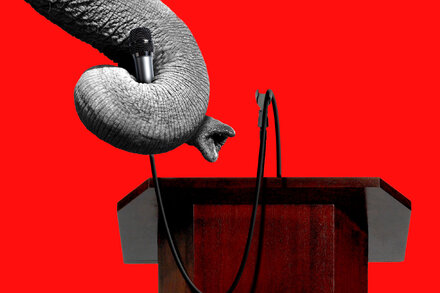While “cancel culture” is often associated with progressive movements, a closer examination reveals that similar tactics of public shaming and boycotts have a long and prominent history among conservative factions. This long-standing practice suggests the right didn’t simply adopt these methods from the left.

The term “cancel culture” has become a pervasive fixture in contemporary political discourse, often invoked to describe instances where individuals face public backlash, boycotts, or professional repercussions for perceived ideological transgressions. While frequently associated with progressive movements and online activism, a closer examination reveals that similar tactics of public shaming, deplatforming, and economic pressure have long been employed across the political spectrum, including by conservative factions.
Historical precedents suggest that the phenomenon of seeking to silence or impose consequences on those deemed to hold objectionable views is not exclusive to recent left-leaning movements. Decades before the advent of social media, conservative groups frequently organized boycotts and public campaigns against entities perceived to undermine traditional values or promote morally questionable content.
Historical Roots of Conservative Pressure Campaigns
During the 1980s, organizations such as the Moral Majority and the Christian Coalition mobilized significant grassroots efforts to influence cultural output. These groups led high-profile boycotts against television shows, musical artists, films, and businesses they considered to be immoral, anti-family, or anti-Christian. Their goal was to exert economic pressure and public censure to alter corporate behavior and limit public exposure to content they opposed. This era saw calls for the removal of certain books from school libraries, protests against art exhibitions, and campaigns to pressure advertisers to withdraw support from specific media programs.
The “culture wars” of the late 20th century further illustrate this dynamic, with conservative activists often challenging academic curricula, scientific consensus on issues like evolution, and artistic expressions deemed offensive or blasphemous. These campaigns frequently involved efforts to remove individuals from positions of influence, revoke funding, or otherwise limit the reach of opposing viewpoints.
Modern Manifestations
In more recent times, conservative-led boycotts and pressure campaigns have continued to target corporations and public figures over a range of cultural and political issues. Companies like Target, Nike, and Bud Light have faced significant backlash and calls for boycotts from conservative consumers and activists over their stances on LGBTQ+ rights, diversity initiatives, or other progressive causes. These campaigns often involve organized social media movements, traditional media condemnations, and calls for economic divestment or public shaming, mirroring many of the tactics attributed to “cancel culture” on the left.
Beyond consumer boycotts, conservative efforts have also focused on academic institutions, media organizations, and public schools, challenging curricula, demanding the removal of certain books, or advocating for the dismissal of educators whose views are deemed ideologically unsound. The aim, much like historical conservative movements, is to shape public discourse, enforce ideological boundaries, and ensure adherence to a particular set of values.
The evolving debate surrounding “cancel culture” highlights that the practice of attempting to hold individuals or entities accountable for perceived ideological or moral failings—often through public pressure, economic sanctions, or professional repercussions—is a complex phenomenon with deep roots across the political spectrum. Rather than being a recent invention of one particular ideology, it appears to be a recurring feature of cultural and political contestation, adapting its form and targets with the changing times.
Source: Read the original article here.





